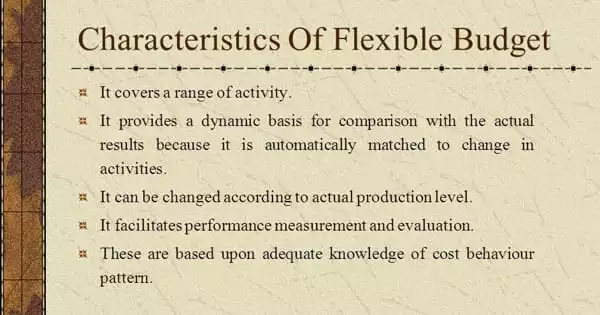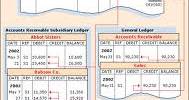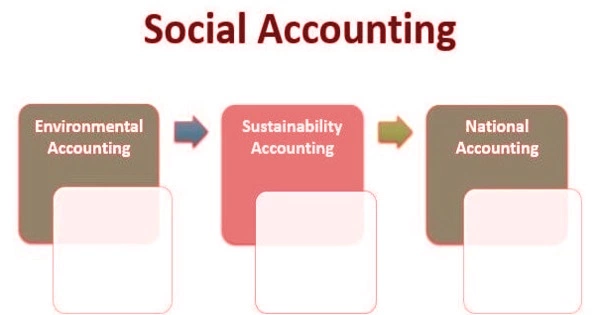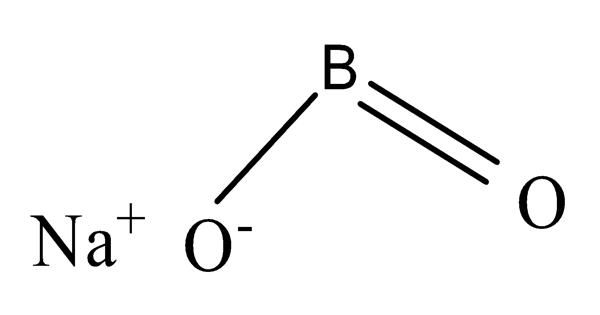A budget is a quantitative expression of a business plan for a specific future period, typically a year. It is simply a financial projection for the future. The flexible budget is intended to change based on the level of activity attained. Thus, a flexible budget is one that is prepared in such a way that the budgeted cost for any level of activity is available. A budget of this type is created after taking into account fixed and variable cost elements, as well as the changes that can be expected for each item at various levels of operation.
A flexible budget, also known as a variable budget, differs from a static or fixed budget in that it is a collection of budgets for different expected levels of activity. It aids in overcoming the limitations of a fixed budget that is prepared for a single expected level of activity.
Characteristics of Flexible Budget
The important characteristics of a flexible budget can be pointed as follows:
- Wide Range
Because it is prepared to show the expected cost and revenue for various levels of activities, a flexible budget can cover a wide range of activities. It is an operational and resource plan for the company. A budget is a mechanism for planning all of the operations or activities of a company. Revenue and expenses are two components of every operation. The budget must anticipate and quantify revenue and expenses associated with a specific operation. Revenue and expense planning should be done, but so should the resources required to carry out operations. Planning for assets and funding sources will be part of the resource planning process.
- Flexibility
Another distinguishing feature of a flexible budget is its ability to change in response to changes in production and sales levels. Budgets are typically prepared with a specific level of activity in mind as the goal. The planned level of activity is the basis for all functional budgets. A flexible budget is created by recognizing the difference in behavior between fixed and variable costs in relation to fluctuations in output or turnover, and it is designed to change in response to such fluctuations.
- Performance Evaluation
A flexible budget makes performance measurement and evaluation easier. It enables management to compare actual performance and efficiency to predetermined estimates. It can be stated that a flexible budget is calculated in real-time, based on the advantages and disadvantages generated by market demands, which cause the degree of activity to vary throughout an accounting cycle.
- Changes
It takes into account changes in activity volume. Similarly, it enables evaluating the effectiveness with which the company performs and each of its components, because as a factor that will vary depending on the activity carried out based on the cycles, each organization will be able to see which factor affects the efficiency with which it serves customers.
- Replace of Static Budget
By replacing the static budget, the flexible budget helps to overcome its limitations. A flexible budget is one that can be adjusted if the assumptions used to create it change during management’s planning process. A static budget, on the other hand, remains constant even if the assumptions made during planning change significantly.
















